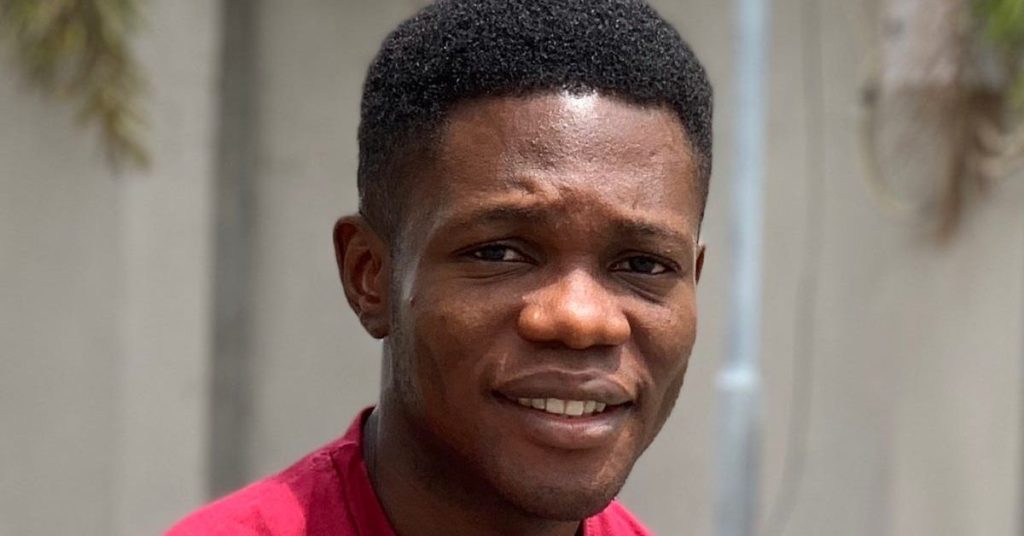CP Nwankwo writes in the spaces between memory, body, and desire, crafting poems that are both intimate and expansive. Featured in Akpata Magazine, his poems—like Portrait of Catch and Quest and I, Decimated Self—embody emotions with a language that is both luminous and ritualistic. For Nwankwo, poetry is not a finished product but a living act of witnessing, where rhythm, image, and emotion shape themselves in real time.
In this conversation, we dive into Nwankwo’s creative world.
1. Many poets struggle with where to start; the blank page can be daunting. What is your approach to starting a new poem when you have nothing but a vague sense of wanting to write?
I rarely begin with a “blank page panic”. For me, poems often begin in the senses. My ability to feel is experiential in lines: an image, a sound or a phrase that won’t leave me alone. My memory is beautiful in its messiness. I guess I’m a vulnerable witness to a river of memories. Once there’s an ache, I don’t wait for the whole poem; I chase the small spark and let it open the door. I pray for that immersion to bleed, because what I fear more than a blank page is not bleeding at all.
2. Many poems carry a hidden architecture. How do you approach the shape and structure of a poem before you write it—or does the structure emerge only as you write?
For me, structure is only an embellishment. I don’t think of it beyond that. I write toward a finished breath, even if it is never truly finished. If it is a poem, it shapes itself after much gasping. I never sit down and decide, “this will be a sonnet, sci-fi, or something in between.” Instead, I wait for the poem’s shape to reveal itself once my fantasy has stretched. What do you expect from the mind of a writer that stretches like a river? For me, the architecture reveals itself in the rhythm of how the poem wants to be spoken aloud.
3. When you work with layered imagery, how do you keep the poem from becoming overcrowded while still preserving richness?
It is a balance. I approach my writing with a sharp, questioning eye. I question it a lot. I think of imagery the same way I think of seasoning in cooking. I’m always in check: too much, and you lose the taste of the meal; too little, and it feels bland. Imagination is my soul in writing, but each image has to earn its place. Sometimes the silence between images is as important as the images themselves.
4. You often use repetition in your poems, almost like a refrain is used in music. How do you ensure repetition deepens a poem instead of becoming redundant?
I laughed at this one. For me, repetition is like a drumbeat, apart from its emphasis. I welcome it into my poems because it circles something deeper each time. It creates a trance, a kind of daylight in the mind. To avoid redundancy, I let it spiral only toward wonder.
5. In poems like “Microcosm as a Body of Death” and “I, Decimated Self”, you use the body in elevated language, often as a metaphor. One of my favourite lines from “I, Decimated Self” is “goads of flesh prodding in grief“. How can a poet write about the body in a way that’s both intimate and expansive?
I think the body is the first landscape we know—the first truth, the first literature. To write about it is already intimate. But to write expansively, the body becomes more than flesh; it becomes a journey, a history, and an experience. Because the body bears so much silence, its metaphors speak not only for itself but also for the world.
6. What’s a writing habit or practice that has changed the most for you over the years?
Oh my gosh! I used to force poems into neatness—the urge to polish every line before moving on. Mental perfection. I killed creativity by decorating the cage instead of letting the bird fly. Now I allow the mess, the raw and unfiltered. I write quickly, even recklessly, then return later to paint the house. I’ve learnt that poems need raw breath first before they are clothed.
7. Which poet or poem taught you the most about what poetry can be, and why?
It’s hard to name just one, but let me go old-fashioned: Christopher Okigbo. I’ve lost count of how often I return to Mother Idoto. He taught me that poetry can be incantatory, almost ritualistic. He showed me that language can be sacred, surreal, and supplicant without losing its music. His work envelopes me with the spirit and spirituality of what literature can be and do. That flair is both endearing and radical. It’s mostly the reason I love to stay in the verses of the natural and supernatural while writing.
8. Your poems often hold unresolved endings—moments that don’t fully “close”. Why do you choose to leave poems open, and what do you hope that openness does for the reader?
Poems have breath, and in life, nothing closes neatly. The end is always a struggle. It is best left at that. An open ending is a puzzle, a gasp, an invitation; something that temporarily lives inside the reader’s mind. To echo Michael Imossan, a poem never ends, let others come and do whatever they wish with where it pauses. In this same vein, I want readers to leave a poem still carrying it, unsettled.
9. There’s a noticeable rhythm in your work that isn’t quite formal metre but feels intentional. Do you consciously shape rhythm, or does it emerge instinctively during writing?
Mostly instinct. Being an observer takes the courage of a keen sense organ. Normally, I write with my ears; if a line doesn’t sing right, I break it or bend it. Rhythm is what Ms Chioma Agomo taught me in secondary school literature: a poem is an invisible current that pulls you in or pushes you out. Sometimes I only notice later that the poem has a heartbeat running through it, once the work is done. I think it’s important to have pieces that pull you in.
CP Nwankwo (he/him), SWAN IV, writes from Port Harcourt, Nigeria. He was recently shortlisted for the Alpine Fellowship prize for Poetry, 2025. His work is published/forthcoming in Frontier Poetry, Palette Poetry, Mizna, Magma, Strange Horizon, Consequence Forum, Lucky Jefferson, Rough Cut, Another Chicago Magazine, Big Score Lit, Poetry ColumnNND, and elsewhere. He tweets @CP Nwankwo
Because great writing shouldn’t be hard to find. Subscribe to get the best reads in your inbox.




